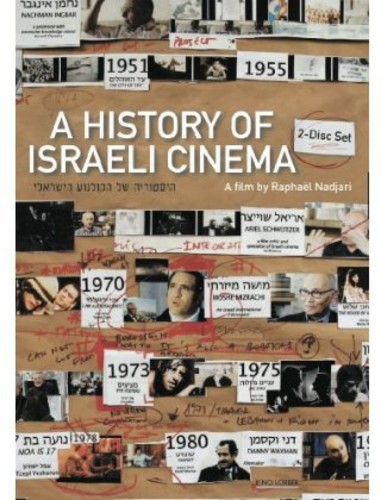Show results for
Explore
In Stock
Artists
Actors
Authors
Format
Theme
Genre
Rated
Studio
Specialty
Decades
Size
Color
Deals
- 4K Ultra HD Sale
- Action Sale
- Alternative Rock Sale
- Anime sale
- Award Winners Sale
- Bear Family Sale
- Blu ray Sale
- Blues on Sale
- British Sale
- Classical Music Sale
- Comedy Music Sale
- Comedy Sale
- Country Sale
- Criterion Sale
- Drama Sale
- Electronic Music sale
- Golden Age of Hollywood sale
- Horror Sci fi Sale
- Kids and Family Sale
- Metal Sale
- Music Video Sale
- Musicals on Sale
- Mystery Sale
- Naxos Label Sale
- Page to Screen Sale
- Paramount Sale
- PBS on Sale
- Rap and Hip Hop Sale
- Reggae Sale
- Rock
- Rock and Pop Sale
- Rock Legends
- Soul Music Sale
- TV Sale
- Vinyl on Sale
- War Films and Westerns on Sale

A History of Israeli Cinema
- (Mono Sound, 2 Pack)
- Format: DVD
- Rated NR
- Release Date: 1/29/2013

A History of Israeli Cinema
- (Mono Sound, 2 Pack)
- Format: DVD
- Rated NR
- Release Date: 1/29/2013
- Starring: Yehuda Ne'eman, Avi Mograbi, Joseph Cedar, Amos Gitai, Menahem Golan
- UPC: 738329066024
- Item #: 465801X
- Director: Raphael Nadjari
- Rated: NR
- Genre: Documentary
- Release Date: 1/29/2013
- This product is a special order
- Subtitles: ENG
- Closed Caption: No
- Original Language: HEB
- Original Year: 2009
- Run Time: 208 minutes
- Distributor/Studio: Kino Lorber
- Number of Discs: 2

Description
Raphael Nadjari's extraordinary two-part documentary weaves together clips from more than 70 years of Israeli film with commentary from filmmakers, scholars and critics - including Amos Gitai, Joseph Cedar, Avi Mograbi, Yehuda Ne'eman, Menachem Golan, Moshe Ivgy, Ronit Elkabetz and Zeev Revach. Crafted for both insiders and outsiders, the film traces the evolution of the country's cinema alongside political and social history: part one spans the years 1933 to 1978, covering the overlap between the Zionist struggle to form a state and the propagandistic qualities of revolutionary cinema; part two, the shift to reality-based filmmaking in the late 70s, and the transition from the political films of the 80s to the more personal cinema of today. The most comprehensive and compelling record of the subject ever attempted, Nadjari's film reveals a cinematic national identity that is inextricably linked to the ever-changing emotional reality of the country.

